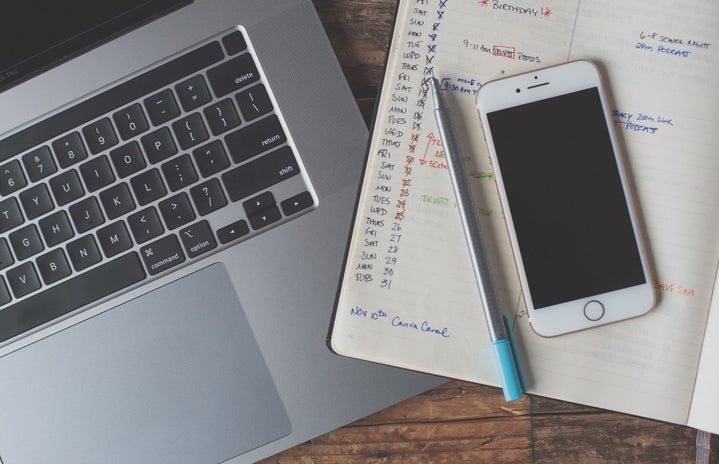College is hard: The standards students hold themselves to can make simple tasks, like starting homework or applying for jobs feel paralyzing despite being a fundamental aspect of academic success. Growing up, my ADHD deepened that feeling, but after working with an executive functioning coach and learning from professionals in academia, I have figured out what tips and tricks work for me and hopefully will work for you.
First, what is executive functioning coaching? It teaches people how to navigate life’s challenges, emphasizing time management, organizing, planning ahead, and prioritizing goals. The work can be done on your own or with a professional and helps you develop life-long skills that apply to all aspects of life. I found that the lessons I learned impact my life daily, and I wouldn’t be the successful student I am today without them. Here are five that I use the most:
- Identify your long-term assignments:
Looking at the big picture was something I always struggled with throughout high school, until I heard about the following spreadsheet layout from a guest speaker. At its core, it is a tracker of all your essential assignments for all your classes in the order they are due. I organize mine by:
A. Class name.
- Each class gets a vibrant color.
B. Assignment type.
- Is it a writing assignment? A quiz?
C. How long does the assignment need to be?
- This category is crucial if you write many papers so you can budget time accordingly.
D. How many points/what percentage is the assignment worth?
E. The due date.
- It should be in a larger font size and bold to stand out.
F. Am I allowed feedback?
- This motivates me to complete the assignment early to ask for feedback. It also prevents me from putting it off until the night before.
G. Completed?
- I make a checkbox for this to get the gratification of crossing it off.
*A hack: Put in all the assignments as you go through the syllabus, and then sort the data by the column in which the due dates are! This way, your assignments are in chronological order.
2. Do your easiest task first:
Whether it be reading, deciding which paper to start, or a math problem, my executive functioning coach told me to do the easiest items first. This way, you can get the gratification of completing an assignment and leave nothing to do after you’ve expended so much mental energy on your more challenging assignment.
3. Schedule study breaks:
When the work starts to pile up, take time for yourself. I schedule my time as follows: 45 minutes of work, 15 minutes of break, then 1.5 hours of work, and 20 minutes of break. I choose my intervals based on how tired I am, how much work I have to get done, and how much the work interests me.
4. Find a quality study playlist that you only listen to when working:
This one may sound silly, but I have found it super helpful. When that music comes on (for me, it’s the soundtrack to “The Holiday” by Hans Zimmer), my brain knows it’s time to lock in and do my work. My high school AP Lang teacher found this for us, and I have used it ever since.
5. Remember to give yourself grace:
As college students, we have so much going on in our day-to-day lives that it can be hard to give everything equal attention, but not all classes are created equal. If you find yourself drowning in work, there is no shame in going to your professor for help. In my experience, having an open and honest dialogue about your class load when asking for an extension or guidance with an assignment is always productive and goes a long way. We aren’t built to go through life alone, so there is no reason to approach academics with that same mentality.


